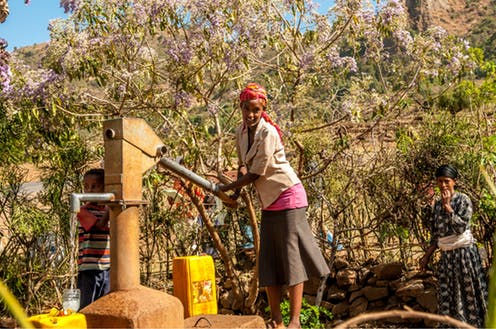By The Conversation
Groundwater reserves in Africa are estimated to be 20 times larger than the water stored in lakes and reservoirs above ground. These are the freshwater stores that flow in rocks and sediment beneath the Earth’s surface. They are a vital source of drinking water in sub-Saharan Africa, where groundwater is often the only year-round supply of freshwater in rural areas. Increasingly it is being used in towns and cities as well.
Accessed through wells, boreholes and springs, groundwater is so valuable because it can be found almost anywhere and is generally high quality. It’s often a more reliable source during drought than other water sources. As climate change affects the reliability of water supplies at the surface, more freshwater will likely be drawn from beneath the ground to support rising populations and to irrigate crops. The big question is how much groundwater can be used sustainably as climate changes?
Despite its obvious importance, surprisingly little is known about how groundwater in sub-Saharan Africa is replenished and how resilient it is to climate change. The main reason for this is that, until now, scientists haven’t had access to groundwater level records that go far enough back to see how the climate and groundwater are linked. So regional assessments of groundwater have, to date, relied on computer simulations that aren’t tested by groundwater data.



